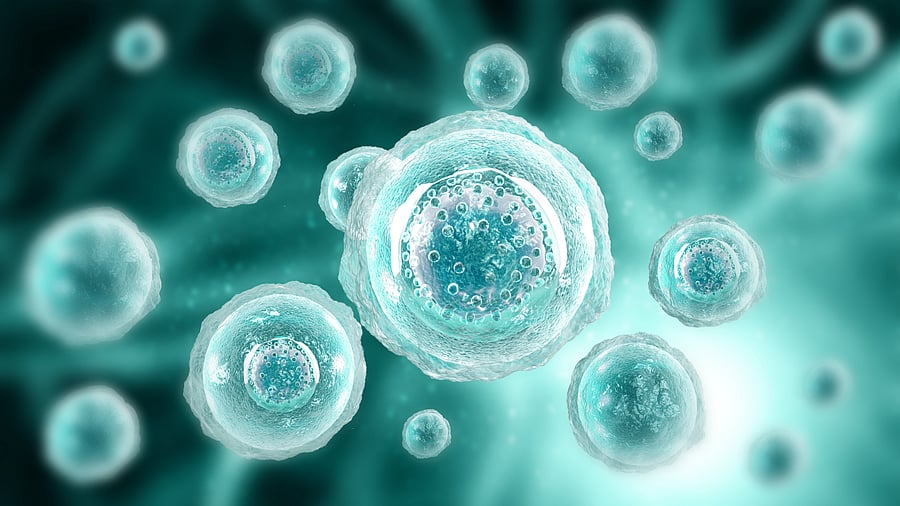
Image for representative purposes.
Credit: iStock Photo
Hyderabad: A new discovery from Hyderabad based Centre for Cellular and Molecular Biology (CCMB), brought forth a novel way to expedite tissue repair and regeneration. A team of scientists led by Dr Santosh Chauhan show that cells have built-in way to revive back from brink of death.
The process of revival is highly programmed and mimic developmental growth. The scientists demonstrated that such a revival, which they called as Programmed Cell Revival, sped up skin wound healing and repaired corneal burns in mice, stimulated tail regeneration in frog tadpoles, promoted nerve repair in worms, and enhanced blood stem cell production in fruit flies.
The study is published in EMBO Journal. This finding overturns the dogma that once a cell begins to die, its journey is irreversible. “What we see is not accidental survival of cells. Rather we find that cells across organisms have the ability to follow a common mechanism that can reactivate their developmental, metabolic, and immune pathways to restore their full cellular function. This discovery reshapes how we think about life, death, and healing at the cellular level,” commented Dr Chauhan.
The scientists have filed for Indian and international patents for this finding. The scientists also cautioned that the same revival programme could pose risks in certain contexts, particularly cancer.
“Many cancer drug screens rely on superficial signs of cell death, but this study warns that such cells may not be truly dead and could revive with enhanced stem-like properties, potentially making tumors more aggressive. While Programmed Cell Revival mechanisms may be a blessing for regenerative medicine strategies, they possibly reduce the efficacy of cancer treatments,” detailed Dr Chauhan. This discovery has opened up a new frontier in cell biology that is poised to engage experts of regenerative medicine and cancer biologists to look at their findings in a new light.